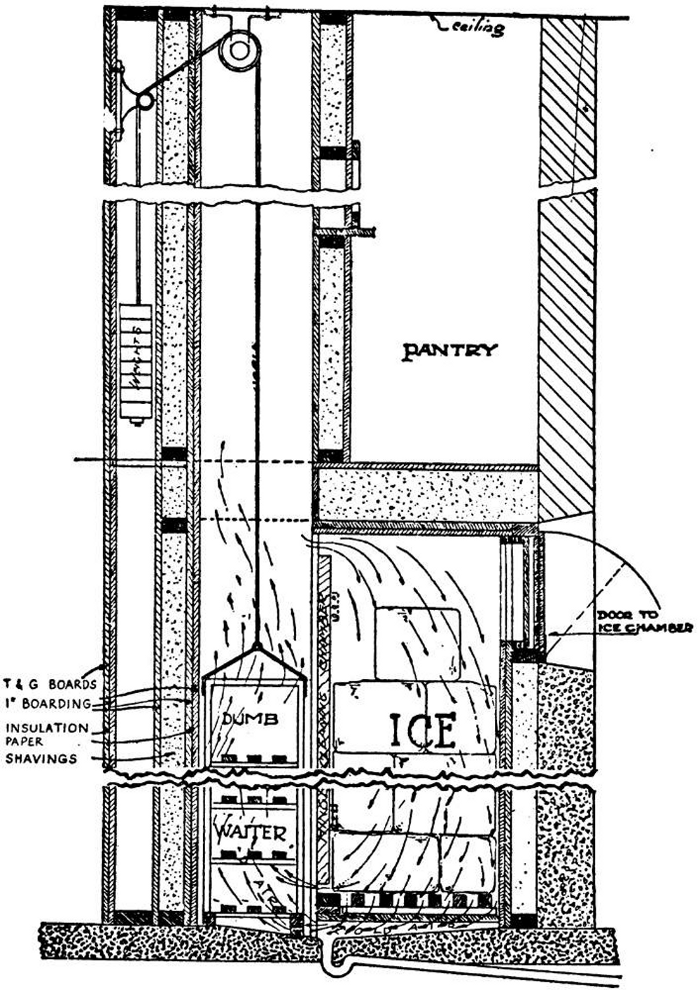The following information comes from Five Acres and Independence by M. G. Kains. Five Acres and Independence is also available to purchase in print.
If any one thing is more essential than any other in every branch of farming it is that the owner personally direct all operations. He cannot be an absentee farmer and he cannot entrust his interests entirely to hirelings. However, unless he is experienced he is incompetent to direct any part of the necessary or advisable work; so an even more fundamental essential is that he not only learn to do every kind of work himself but become a keen observer and logical thinker.
To apply these statements to you: The important points about making yourself proficient and thinking while performing each operation are that you will thus first teach yourself the how, why and when; second, by thinking as you work, you can discover quick ways, short cuts and timesavers; and third, you will thus make yourself competent to teach your helpers how to do the work in the ways you have proved to be good, if not best. This will mean both that you will be entitled to their respect as a director and that you will get the work done efficiently and economically.
“Book farming,” formerly a term of contempt, is now recognized as a good thing in its place. But without practice no book, not even this one (!) can make you either proficient or competent in any branch of farming. All it can do is to inform you—present ideas, methods, practices, tables, illustrations, etc., for you to digest and utilize as occasion may arise. Until you have tested them by actual practice you cannot know how practical they are.
In farming, more than any other business, you must teach yourself, for every day during even the longest lifetime will bring its problems and lessons. Reading and listening to lectures, radio talks, etc., though important and often helpful, are poor substitutes for observation and translation of the observations into terms of understanding, decision and action when this last shall be necessary or advisable.
One of the most profitable habits you can form is systematically, every day, to go over at least part of your premises in a leisurely, scrutinizingly thoughtful way, and the whole of it at least once each week throughout the year to reap the harvest of a quiet eye and fill the granary of your mind with knowledge of the habits of helpful and harmful animals, birds and insects; to observe and understand the characteristics of plant growth from the sprouting of the seed through all the stages of stem, leaf, flower, fruit and seed development; to note and interpret the behavior of plants, poultry and animals under varying conditions of heat and cold, sunshine and shade, drouth and wetness, fair weather and foul, rich and poor feeding. Here is not only the best farm school in which to learn the duties you owe your dependents (plants and animals) and yourself for your own best interests, but in which to enjoy the most delightful compensations of farm life; for it gives the thinking observer mastery over his business, brings him en rapport with his environment and in tune with The Infinite.

If you are a city man all this at first will be a foreign language to you; you will have to teach yourself Nature’s alphabet before you can read her messages. In this respect you will be at a disadvantage when compared with the countryman. One of your greatest handicaps will probably be assumed superiority to “farm hands” and even farmers; for what you may consider “a good education” too often is really of small use in a country setting. What if farm hands, taken as a whole, do not intellectually compare with city clerks, salesmen and bookkeepers and do not perhaps as quickly understand theories! They have the advantage that they know from daily experience at least something about soils, plants, animals, implements, tools and how to treat each. For this reason they are far more valuable to themselves and their farming employers than are raw recruits from the city.
In order to avoid being jeered at for your ignorance it is usually advisable to tell your country associates that you have had little or no experience and that you are eager to learn because you have taken up the business to earn your living therefrom. You will then be respected for your attitude and will not be likely to be made a laughing-stock.
Even the city laborer who has had a garden for a year if not longer is more likely to succeed than is the “white collar” man of “better education” who has not had the advantage of similar experience. The proportion of successes is surer to be with the laborers than with the clerks, salesmen and bookkeepers. Why? They are trained to manual work and they use what brains they have to make their muscles obey them rather than to rely on “someone else to do the dirty work.”
Then, too, such laborers have the endurance which white collar men usually lack; they can stand the 12 to 16 hours a day which farming often demands, especially during the growing season. It follows from this that at the start, no weaklings and usually no one “well along in years” can count on success in any branch of farming for a living; though, if he have means to tide him over say three or perhaps two years, the outdoor life will “make a new man of him” and fit him for the more arduous but pleasing duties of the business.
